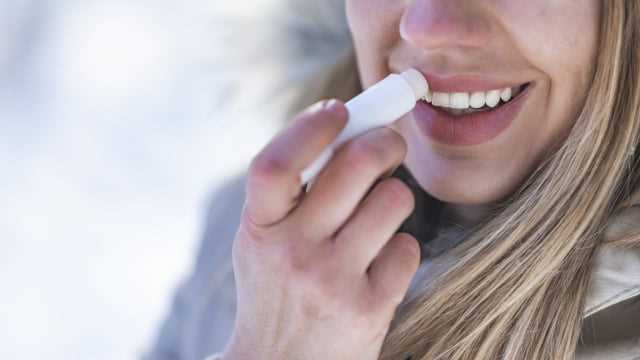As ÖKO-TEST has found out, you should take a close look at lip care sticks with UV protection. Well-known brands such as Labello, Carmex or Blistex do not pass the test due to critical ingredients. Some products even contain carcinogenic mineral oil components.
UV protection is important not only in summer, but also in winter. The lips are often forgotten. They are so-called sun terraces and should therefore be particularly well protected from solar radiation. But not all lip care products with UV protection are suitable.
The cheapest are the best, the expensive ones fail: The magazine ÖKO-TEST (Edition 01/2022) has examined lip balm sticks with UV protection for harmful substances. Of the 21 products, nine were rated “poor” or “unsatisfactory”. Including well-known brands and products from the pharmacy.
So you should keep your hands off these products:
- Ladival Aktiv UV protection stick 30 – “poor”
- Sun Dance Lip Care Stick 30 – “insufficient”
- Bepanthol Lipstick SPF 30 – “insufficient”
- Blistex Lip Infusions Hydration SFP 15 – “insufficient”
- Carmex Classic Lip Balm SPF 15 – “insufficient”
- Echinacin Lipstick Madaus Care + Sun SPF 20 – “insufficient”
- Eucerin Lip Active, SPF 15 – “insufficient”
- La Roche-Posay Anthelios XL Stick, SPF 50+ – “insufficient”
- Labello Sun Protect Lip Care Stick SPF 30 – “insufficient”
You can read the detailed test report read for a fee at ÖKO-TEST.
These are the test winners
After all: four products were rated “very good” and two were rated “good”, including the inexpensive own brands from drugstores and supermarkets.
Test winners are: Sunozon lip care stick SPF 30 from Rossmann, Sun D’Or lip care stick SPF 30 from Euco (Budni / Emil Kiessling), Bevola lip care Sun Protect SPF 20 from Kaufland (Delarange Cosmetics) and Annemarie Börlind Sun Care Lip Stick 20 from Börlind (view at Douglas).
Harmful substances in lip care
In the summer of 2021, the European Food Safety Agency (EFSA) classified titanium dioxide (TiO2) as potentially mutagenic if the substance is ingested orally through food. The experts did not take into account the transmission from cosmetics for their assessment, but the ÖKO-TEST does this in its analysis for consumer protection. Because lip care passes through the lip movements and the drinking or eating partly into the mouth and is swallowed in this way.
tip: The substance of concern is noted on the list of ingredients with the designation “Titanium Dioxide” or “CI 77891”.
The products tested contain other questionable UV filters and controversial ingredients such as mineral oil hydrocarbons (MOAH), which can contain carcinogenic substances, among other things.
Natural cosmetics cannot convince either
Even certified natural cosmetics, which otherwise almost always score very well in such pollutant analyzes, only get the grades “satisfactory” or “sufficient” in this case. Because the mineral UV filter titanium dioxide (TiO2) is also contained here.
To the detailed report at ÖKO-TEST
